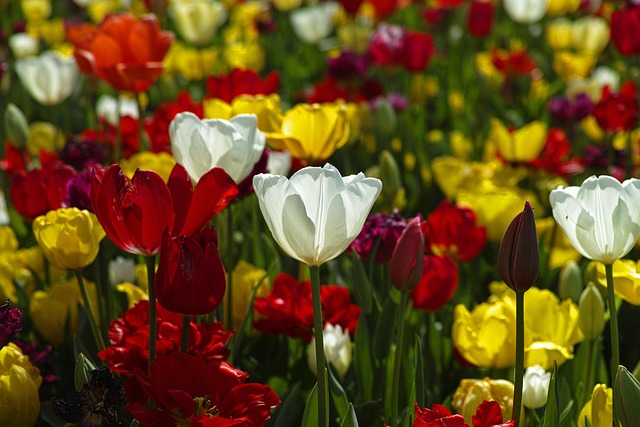
Gardening is a very relaxing hobby with the added bonus that it isn’t that expensive. Ask your friends and family to keep you company in the garden. Children will be delighted watching seeds grow and flourish into beautiful flowers and tasty vegetables. This is a wonderful opportunity to teach your children about nature and help them to develop an appreciation for the great outdoors. By reading this article, you will learn some tips which will make enjoying your garden easier. If you’re enjoying gardening, you’re more apt to invite others to join you in the activity.
Choose perennials that slugs are not attracted to. Slugs and snails can decimate a plant in one night. They gravitate towards perennials with smooth thin leaves, particularly on younger plants. Slugs and snails will leave some perennials alone, particularly those with a bad taste or tough, hairy leaves. Achillea, euphorbia, helleborus, heuchera and campanula are good choices that slugs don’t like.
If you notice powdery mildew on your plants, do not buy an expensive chemical. Rather, you should mix a bit of baking soda with a small quantity of liquid soap in water. Spray this solution on plants once weekly until the mildew is gone. This mixture will not hurt your plants and it will eliminate the mildew slowly but efficiently.
Pick the proper soil in order to get the best outcome. You may need to alter the kind of soil you use based on the types of plants you intend to grow. You may also be able to design an artificial area that contains one type of dirt.
When mowing your lawn, avoid mowing the grass too short. If you leave your grass a bit longer, the roots can grow deeper. This results in a lawn that is stronger and less likely to dry out. Short grass leads to more shallow roots and will result in more brown, dried-out patches.
Coffee Grounds
If your soil is highly alkaline, try mixing used coffee grounds into the soil. Coffee grounds are an affordable means of adding acid to the soil so that it is pH-balanced. You will notice that your vegetables and greens will have a stronger taste.
The best gardens will evolve from original seeds rather than transplanted items. The environmentally conscious way to start a new garden is to start with seeds. Since plastics that are in nurseries aren’t recycled very often and therefore usually wind up in landfills, you should begin with seeds or purchase from the nurseries that use natural materials in their plants’ packaging.
Using natural materials in the garden will keep pests away. Slugs stay away from marigolds and onions when they are planted in a garden. Wood ash, when used like mulch, can keep away pests after it is spread around a tree base and shrub seedlings. By utilizing these methods, you will not have to apply chemical pesticides on your vegetation.
Whether you have been gardening for a few days or a few decades, you must never deviate from the instructions on the labeling of all implements and chemicals. Irritation of the skin or even more serious injuries are possible if you ignore manufacturer’s directions. Protect your plants and yourself by knowing how to correctly use all of your horticulture implements.
Take a look at planting berry-producing evergreens in your yard. This will keep your garden colorful, even during those months when other plants are not growing. These plants can help you get some color during the winter months: Winterberry, Common Snowberry, American Holly, and American Cranberrybush.
You should be cognizant of the peak time for harvesting your vegetables. Every type of vegetable has a different moment of ripeness. Some vegetables are best when fully ripe and others taste better when harvested early in their development. Plant winter vegetables at the right time for a sweeter flavor. So, learn about the ideal harvest time for your vegetables.
To keep your dog out of your garden, spray old perfume, aftershave, or other scented items in the grass around it. This will work to mask any scent that is attracting dogs, and will make the garden a much less interesting place to for dogs to be.
Protect yourself from sun overexposure while gardening by wearing the proper clothing. Pair sunglasses with wide-brimmed hats and a dab of sunblock. Using the right protection from the harmful rays of the sun means less of a chance of you getting sunburn and skin cancer.
If you are growing plants organically indoors, you have to consider the light that they are getting. If your house or apartment doesn’t get a lot of natural light, one option is to grow something that only requires medium or low light. If you simply must have a plant that has higher requirements for sunlight, you can use indoor UV lamps.
Coffee grounds can benefit many types of soil. The grounds contain essential nitrogen, which will benefit your plants in many ways. A strong nitrogen source in your garden area is a wonderful way to have healthy and strong plants.
Horticulture is a great activity that you can do on your own, or share with others. Regardless, the advice in this article can be helpful. You’ll find ways here to bring the joy of horticulture to friends and family or to learn more in-depth understanding of your garden for yourself.